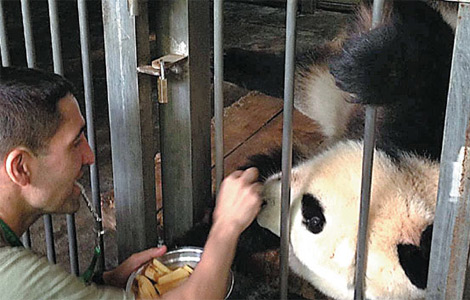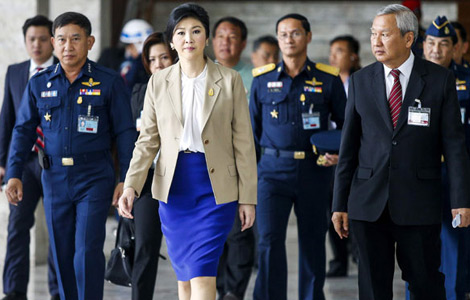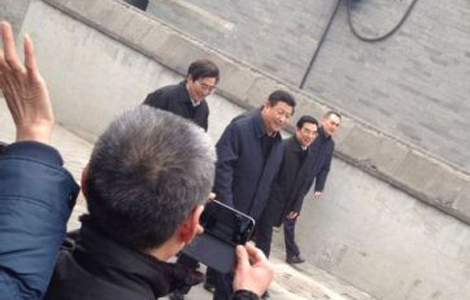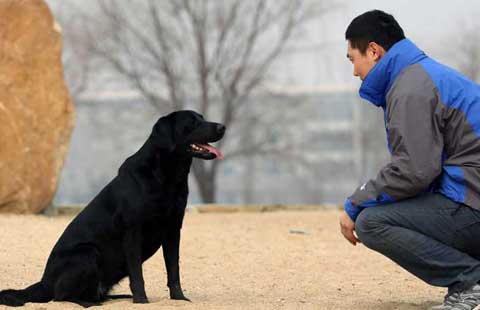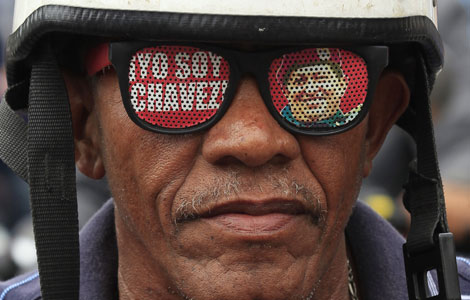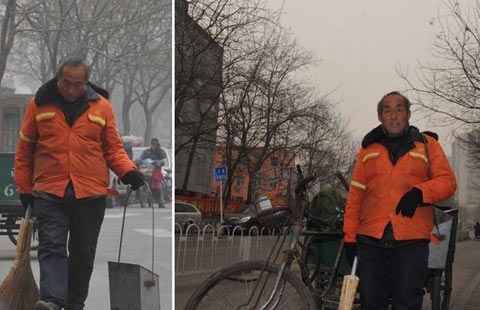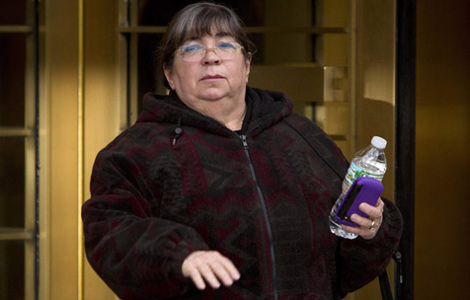WHO urges China to adopt stronger tobacco control
Updated: 2014-02-25 18:39
By Shan Juan (chinadaily.com.cn)
|
||||||||
China needs to overcome “competing interests” to implement more effective tobacco/smoking control to better protect public health, according to a senior official with the World Health Organization.
Shin Young-soo, regional director of the WHO Western Pacific, made the remarks at a media event on Tuesday in Beijing.
“China clearly needs to do much, much more if it is to tackle tobacco-related illness,” which kill about 1 million people in the country each year here, he said.
That could increase to 3 million by 2050, according to WHO estimates. Currently, around 100,000 Chinese die from secondhand smoke every year.
However, public awareness of health hazards from smoking remain low, he added.
China ratified the WHO's Framework Convention on Tobacco Control FCTC in 2006, which requires reductions in tobacco supply as well as consumption.
“It's about life and death, and I think the Chinese government could find ways to address that,” Shin said.
Moreover, the WHO has recognized China's significant public health achievements particularly in reducing hepatitis B prevalence and pressing ahead with large-scale health sector reforms.
Shin Young-soo, on an official visit to Beijing this week, presented an award to Minister Li Bin and the National Health and Family Planning Commission to mark China's historic reduction of hepatitis B among young children.
“The World Health Organization applauds China's leadership in providing lifelong protection from chronic hepatitis B to its youngest citizens and preventing transmission to future generations,” Shin said at the award ceremony on Monday. The hepatitis B vaccine program in China has been highly successful, responsible for the reduction of the prevalence of chronic hepatitis B infection to less than 1 percent of children under the age of 5, down from more than 9 percent in 1992 when the vaccine was introduced.
“Administering a dose of hepatitis B vaccine within 24 hours of birth is critically important to protecting babies from hepatitis B infection during childbirth,” he said.
Hepatitis B vaccination is the safest and most effective way to prevent hepatitis B infection for life, a fact that has been clearly demonstrated in China for more than 20 years, he added.
On the same day, Shin also participated in NHFPC Vice-Minister Sun Zhigang's annual briefing on China's ongoing health care reforms, hosted by NHFPC and WHO.
Sun reviewed the progress in the latest phase of healthcare reform since 2009. Key achievements include a major push toward universal coverage of basic health insurance, thereby reaching 95 percent of the population, increasing reimbursement of healthcare costs and expanding access to basic public health services.
The central government has also invested 94 billion yuan ($15.5 billion) to support the construction of 2,600 county hospitals and 64,000 primary health facilities between 2009 and 2013, statistics from the commission showed.
“This pace of progress is remarkable. I am greatly impressed by the commitment to health sector reform in China. However, there remain huge challenges in China, including the country's sheer size,” Shin noted.
“WHO will continue to work closely with the government to help ensure that all of China's people — especially those most in need and hardest to reach — have access to essential health care,” he said.
He added that many countries were looking to learn from China's innovations and experiences toward achieving universal health coverage.
“With its success in tackling hepatitis B, its robust response to emerging infectious diseases like H7N9 influenza, and its sweeping health sector reforms, China has demonstrated exactly why it is such a major player in regional and global public health. What happens in China truly impacts the world,” he said.
Most Viewed
Editor's Picks

|

|

|

|

|

|
Today's Top News
Beijing protests US post on Tibet
President Xi pops in to Beijing's hutong
Pentagon plans to shrink army
Fight over race in admissions
US ready to aid Ukraine financially
Huawei straps on smartwatch play
Consumer economy 'not' happen
Chinese acrobats meet Ringling Bros
US Weekly

|

|
